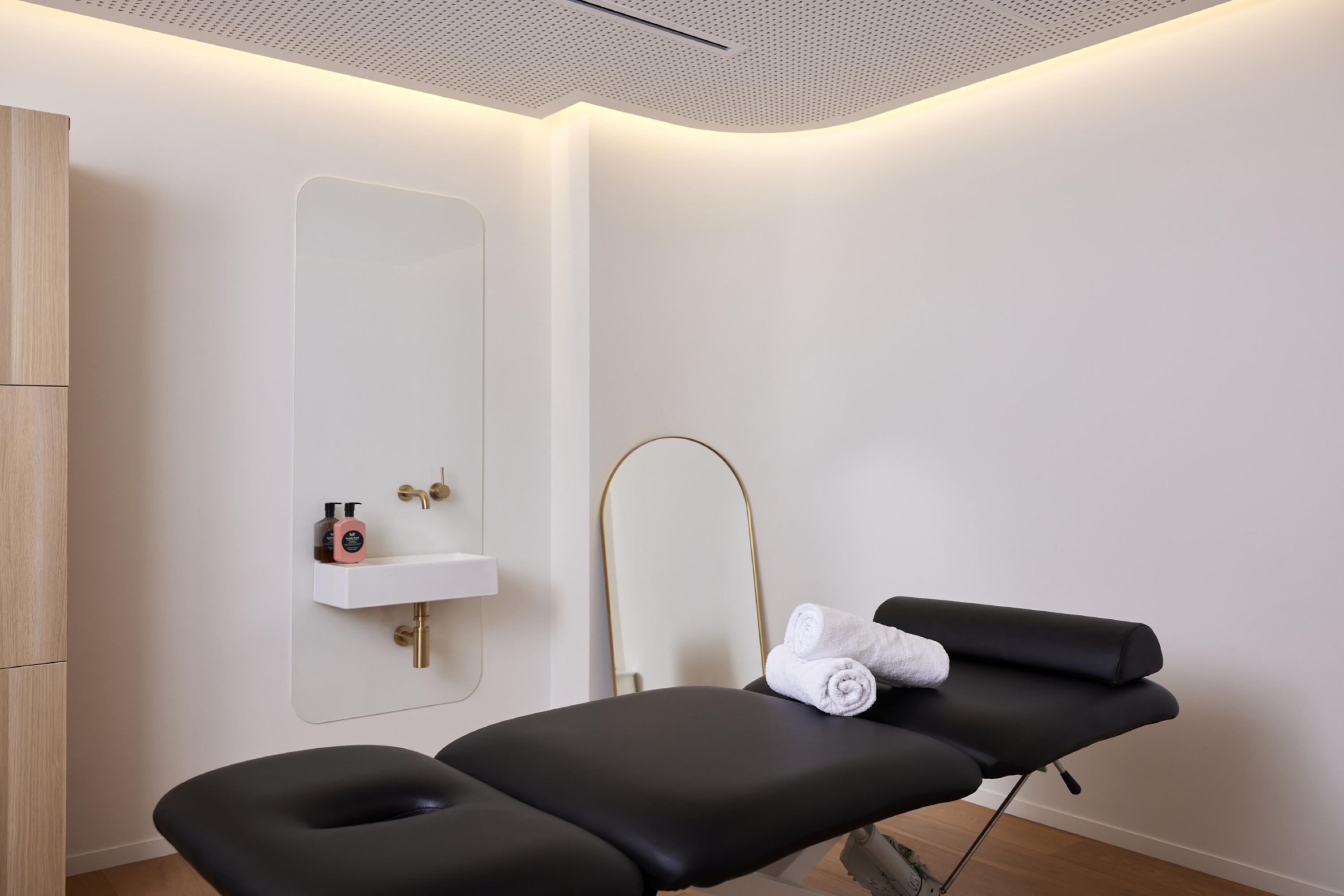Neck pain and headaches are particularly common among those who work office jobs. Prolonged hours spent sitting at a desk and the stress of deadlines can cause stiffness and muscle tension in the neck and upper back. Neck pain typically arises from the cervical spine, which includes muscles, ligaments, joints, and discs. Poor posture is a significant contributor to neck pain and discomfort. Tight neck muscles can lead to tension headaches, where pain radiates to the temples or the base of the skull.
Prevention Strategies
Ergonomic Workspace:
Creating an ergonomic workspace is essential for preventing and alleviating neck pain and headaches. An ergonomic setup aims to optimise the work environment to fit the worker’s needs, minimising strain and promoting better posture. It’s important to consider an adjustable chair, the height of your desk, positioning of your mouse and keyboard and the height of your monitor. Did you know your forearms should be parallel to the floor? Unsupported elbows are a common cause of neck and trap tightness which can result in headaches. An ergonomic assessment can ensure the above needs have been met.
Regular Movement:
It's important to take regular breaks from sitting at your desk. Change your posture every 30-60 minutes. This can include quick walks around the office, standing up and doing shrugs or shoulder squeezes, and alternating between sitting and standing. A good routine is to complete the below every hour on the hour:
Stress Management:
Managing stress is crucial for reducing muscle tension in the neck and upper back, which can lead to neck pain and headaches. Mindfulness practices and relaxation exercises can be effective strategies to help manage stress and maintain overall well-being. We recommend:
Mindful breathing – 4 seconds in, 4 seconds hold, 4 seconds out, 4 seconds hold. Easy to complete from your desk when your heart starts to race, or your cheeks get hot.
Mindful movement – participate in movement that promotes muscle relaxation like Yoga or Stretch and Release.
Sound Guided Meditation – attend a 15-minute lunch-time RISE meditation or listen to a meditative podcast to help re-focus your mind.
Dedicate specific time in your day to complete these practices as they can easily be neglected when important work meetings pop up or life gets in the way.
Treatment Approaches
Sometimes our best proactive practices can still leave us feeling stiff. Seeing a physiotherapist or an osteopath can help reduce muscle tension and stiffness in your upper back and neck. Regular appointments can help manage tight muscles, preventing headaches and migraines. Treatment techniques may include:
Manual Therapy – Hands-on techniques such as joint mobilisation, soft tissue massage, and manipulation can be used to relieve muscle tension, promote relaxation and restore movement to the muscles.
Exercise Prescription – Specific stretching and strengthening exercises are tailored to improve posture, increase neck muscle endurance, and enhance overall spinal stability. These exercises aim to correct imbalances and promote natural spine alignment, aiming to reduce ongoing or reoccurring pain.
Postural Education – Education about ergonomic workplaces and proper body mechanics is crucial in minimising neck strain and reducing the frequency and intensity of headaches.
Use of Heat – In winter, keeping your body warm helps prevent muscle tightness. Wear a scarf or use a heat pack to keep your neck and shoulders warm and limber.
Education and Lifestyle Modifications - Guidance on lifestyle changes, such as stress management techniques, hydration, and sleep posture adjustments, can complement treatment efforts. We encourage looking into these considerations if you have persistent pain.
If you are suffering from neck pain or headaches, book an appointment with Stacey or Allie in the RISE Treatment Room, available Monday-Thursday. For questions or assistance in booking an appointment, visit the booking website here or email rise@101collins.com.au.
